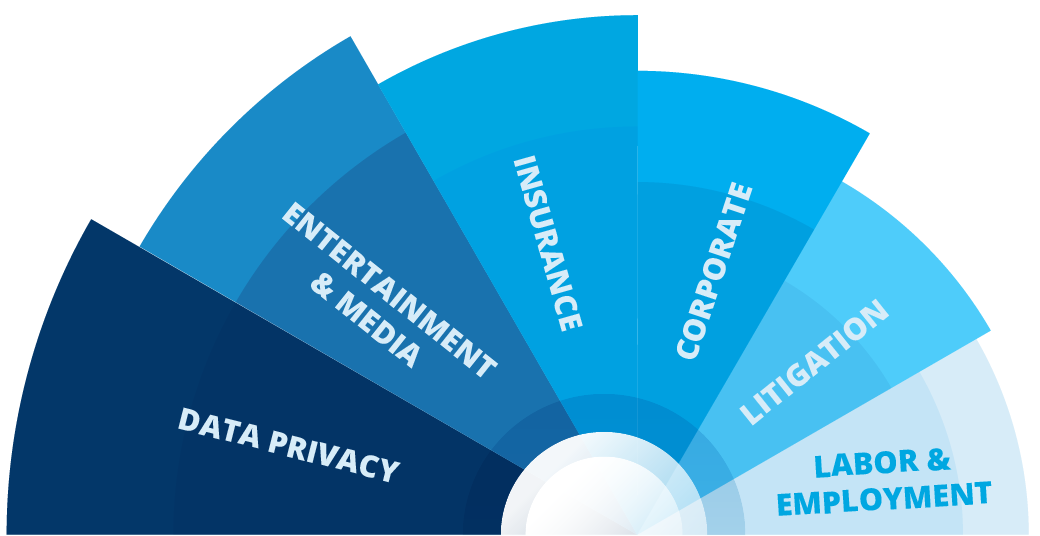Decipher tracked lateral associate moves in the first quarter of 2021 and each of the four years prior. The data shows a market-changing level of movement in specific regions and practice areas where young lawyer mobility is on the rise.
Set aside the racy headlines about same-day offers and six-figure signing bonuses: Data provides actual evidence that 2021 could indeed be the Year of the Associate – and law firms across the profession should be on guard.
Geographically, California-based associates were the top flight risks: San Diego, Orange County and Los Angeles clocked the most lateral associate movement nationwide, with first-quarter moves up 34 percent, 20 percent and 15 percent, respectively, over the five-year average.
Many smaller markets saw modest gains in associate mobility. Among them: Atlanta, with an 8 percent increase; Austin, with a 7 percent increase; and Chicago and Minneapolis, both with a 3 percent increase.
Regarding practice areas – data privacy associates are in exceptionally high demand, with a move rate 167 percent higher than the previous four-year average. Closely following are Entertainment & Media and Insurance, with move rates up 156 percent and 111 percent, respectively, over the previous four-year average.
Of the more bedrock practices, Corporate is up 57 percent; Litigation is up 46 percent; Labor & Employment is up 26 percent; and Real Estate is up 20 percent. Only one practice area – Government Relations – was in decline.
The competition for young talent has inspired law firms to get more aggressive. Case in point: Kirkland & Ellis has offered perks ranging from expedited paths to partnership to signing bonuses of up to $150,000.
More troubling: When associate hiring becomes a literal race, firms start rushing the process. Tactics like mid-interview offers eliminate any possibility of due diligence on these hires – many of whom are recruited with a goal of partnership….and an eventual role as a fiduciary for the firm.
The risks may seem lower, given that associates command smaller salaries and most do not carry an expectation of a portable book of business. But significant risks remain: Associates can commit malpractice, harassment, egregious ethical violations or a variety of misdemeanors and felonies.
- Menglu Wang was fired from her law firm after her husband was arrested for insider trading. He bought more than $2 billion in stock options in a client of her firm…. using information about a transaction she worked on. In a sentencing memo, he claimed he peeked at merger documents while she worked from home.1
- Douglas Arntsen pleaded guilty to three counts of larceny after embezzling more than $10 million from two of his firm’s clients.2 After fleeing to Hong Kong, Arntsen was extradited to the United States for prosecution – and his law firm was sued for $15 million in a very public breach of fiduciary duty claim.3
- Although President Trump pardoned associate Alex van der Zwaan for lying to federal investigators in the special counsel probe of Russian interference in the 2016 election, his law firm had to pay $4.6 million to resolve related allegations.4
- Another former Big Law associate, John Shasanmi, was sentenced to up to four and a half years in prison for stealing $600,000 from a client – a historic Harlem church.5
One associate wasn’t an associate at all: Brian Valery pleaded guilty to second-degree grand larceny after he was caught impersonating a lawyer for two years. Valery, a paralegal, told the firm he had graduated from night law school; in fact, he never even attended.6
The most damning quote from the coverage of Valery’s misdeeds: “At no point did anyone check the veracity of his credentials.” It’s hard to imagine this lack of attention to detail was appreciated by the firm’s clients…or its malpractice insurer.
As these examples show, mistakes in associate hiring can significantly harm a firm’s revenue and reputation. But the specific environment of 2021 may make associate hiring even riskier, as a number of factors combine in a perfect storm: More remote working means far less supervision for less experienced lawyers. Remote hiring and its accompanying speed create opportunities to miss clear warning signs. Pent-up demand in the wake of COVID-19 lockdowns and waves of transactional work in advance of anticipated changes to the tax laws has generated an extreme sense of urgency. Pandemic-delayed life decisions, such as starting a family, or changing careers may disproportionately affect the associate demographics – creating temporary shortages and even more perceived demand.
It’s imperative that law firms avoid getting caught up in the chaos. Slow down, and take the time to know who you are hiring – or today’s fast hire could be tomorrow’s regret.
2Staten Island attorney admits to embezzling more than $10 million from clients – silive.com
3Crowell & Moring Sued; Ex-Client Claims $15M Lost Due to Embezzlement by Then-Associate of Law Firm (abajournal.com)
4Former Skadden associate is among 20 people granted clemency by Trump (abajournal.com)
5Former BigLaw attorney sentenced to prison for stealing $600K from church (abajournal.com)
6Fake Lawyer May Avoid Real Prison Sentence (abajournal.com)
